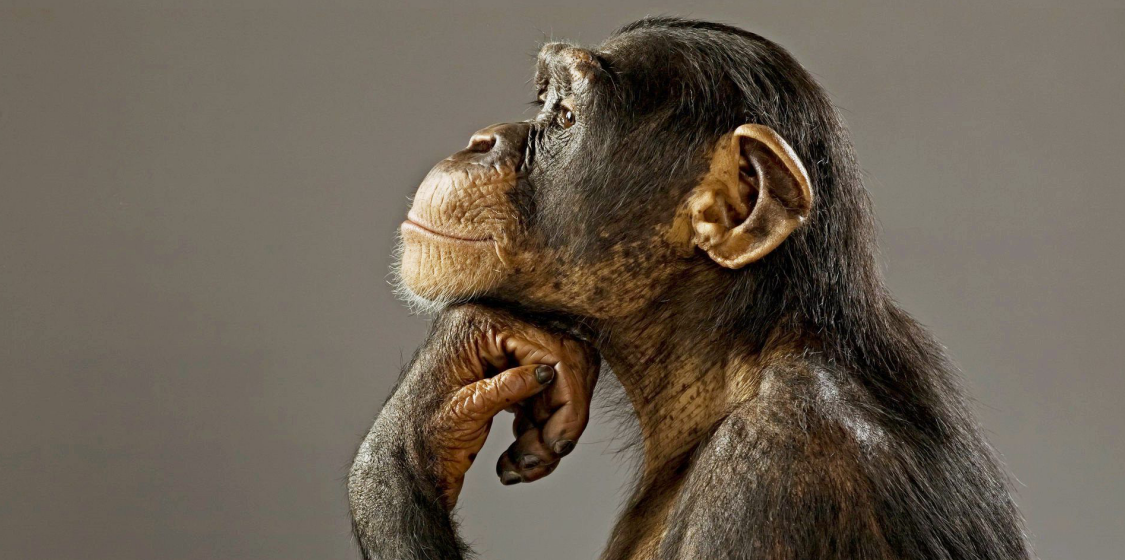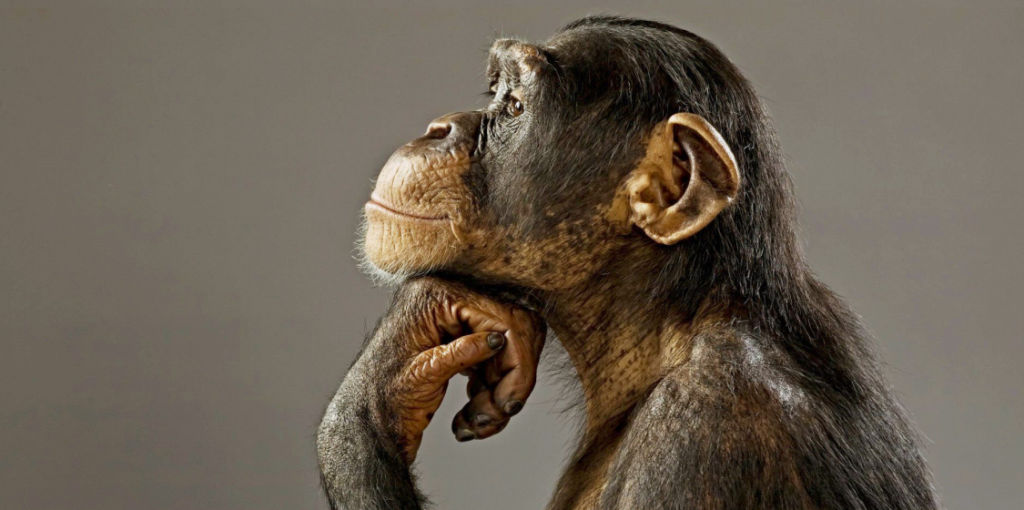by David Gorin
We have a bond with all animals. But, sharing a 98.5% DNA match, our very essence is closest to chimpanzees.
Our closeness accounts for the similarity of our attributes and expressions. We laugh when we play, we display affection by hugging, and we both communicate with facial and other gestures.
Chimpanzees, together with orangutans and gorillas, are known as our planet’s ‘great apes’. Just 50 years ago, there were about a million chimpanzees roaming the savannas and tropical forests of central and West Africa. Now, tragically, there are only between 170,000-200,000 left in the wild, and they are listed as ‘endangered’ by the International Union for Conservation of Nature (IUCN), meaning they face a very high risk of extinction.
Of the four subspecies, Western chimpanzees, inhabiting the corridor from Senegal to Ghana with the largest concentrations in Guinea and Côte d'Ivoire, are critically endangered. Recent studies calculate just 35,000 remaining. “We’re desperately concerned about the plummeting numbers of all chimpanzee subspecies,” says Andrea Matthee, campaigner at the UK’s Animal Survival International (formerly Political Animal Lobby). “But for the Western chimpanzee it’s reached crisis stage.”
People are driving chimpanzees toward extinction. The declines have been dramatic. We’ve lost 80% of the world’s chimpanzees in the quarter century to 2014. The outlook is extremely concerning: the IUCN forecasts ongoing declines of 6% per annum unless threats aren’t urgently averted. In 30-40 years’ time, these wonderful creatures – our physical kin – may no longer ramble the earth.
There are many complex and interlinked threats, all associated with human activities, and often rooted in ignorance or greed. Chimpanzees are losing their natural habitat – rapidly. Industrial-scale logging is being conducted in large swathes of central and Western Africa, as human populations expand and the demand for agricultural land and resources extrapolates. Many logging companies operate with utter disregard for consequences, and environmental degradation is near-total.
The developing nations in which chimpanzees live are some of the poorest in the world, meaning that their citizens do not have economic security. Food supplies are problematic, and short-term human needs are prioritised over wildlife concerns. Many governments adopt only rudimentary wildlife and conservation policies, and lack resources to implement them and enforce regulations.
Where international companies and organisations like the World Bank and the International Monetary Fund (IMF) do cooperate with governments, it’s to plan and fund ‘development corridors’ for road and rail links, connecting mines to cities, clearing agricultural land, and creating new residential areas. If this rate of development continues, without holistic ecological policies, by 2030 only 10% of chimpanzees’ natural habitat will remain.
Development, logging and commercial activity is also making poaching easier. Bushmeat is still traditionally eaten in many parts of rural Africa. It’s lucrative for poachers to cater to increasing demand from wealthier urban residents, too. Corruption, widespread availability of firearms, and near-zero enforcement means that the illegal hunting of chimpanzees is increasing. Tragically, when adult chimpanzees are killed, the juvenile and infant animals are captured alive and sold as pets or, through illicit channels, for use in pharmaceutical testing.
Diseases pose a serious threat. Increased proximity to, and contact with humans is exposing chimpanzees to greater risk from infectious diseases such as influenza, tuberculosis, pneumonia – even the common cold. And dreadful zoonotic diseases such as Ebola are a constant, deadly concern for people as well as chimpanzee populations in the region.
Strategic solutions are needed, urgently. Primarily, we must protect – and expand – chimpanzees’ habitats. “Preserving and securing their current territories must be the immediate priority,” says ASI’s Matthee. “But in the medium-term we actually need to enlarge their protected areas, because 80% of chimpanzee populations live outside of these zones.”
Nations with great ape populations must generate high-level environmental plans which integrate with economic development strategies and legal frameworks. Policymakers can then make decisions which balance biodiversity concerns with economic growth, to serve the interests of people – as well as the needs of chimpanzees and the other great apes.
An important adjunct is that the international community needs to pressurize companies operating in Africa. Says Matthee: “Africa has long been exploited for its mineral resources, rubber, coffee, ASIm oil and cocoa. The continent’s natural resources now need urgent protection – prioritising its wildlife.”
“We have a moral obligation to the chimpanzees, our closest animal kingdom relatives,” Matthee urges. “By pushing these beautiful beings to extinction we are shutting the door on discovering our own evolutionary history. We’re barely starting to understand their behaviours. It’s a tragedy, in so many ways.”
Urgent action is needed to protect chimpanzees. You can help by following us on Facebook and Twitter, and by donating here.





